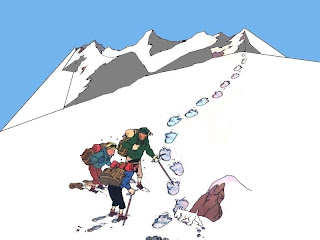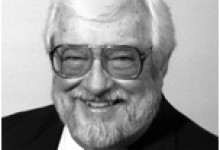The following story may help you understand the importance of beliefs in guiding the emotions of a team through daunting changes. It is quoted from Weick’s book ‘Sense Making in Organizations’ (1995) (*):

“This incident, related by the Hungarian Nobel Laureate Albert Szent-Gyorti and preserved in a poem by Holub (1977), happened during military manouvres in Switzerland. The young lieutenant of a small Hungarian detachement in the Alps sent a reconnaissance unit into the icy wilderness. It began to snow immediately, snowed for two days, and the unit did not return. The lieutenant suffered, fearing that he had dispatched his own people to death. But on the third day the unit came back. Where had they been? How had they made their way? Yes, they said, we considered ourselves lost and waited for the end. And then one of us found a map in his pocket. That calmed us down. We pitched camp, lasted out the snowstorm, and then with the map we discovered our bearings. And here we are. The lieutenant borrowed this remarkable map and had a good look at it. He discovered to his astonishment that it was not a map of the Alps, but a map of the Pyrenees ”
This story clearly demonstrates the power of beliefs on the journey of a team. Regardless of the map, the soldiers regained their faith in finding their way. Does this demonstrate that ignorance is bliss? No. It only proves that in times of uncertainty and ambiguity a sense of direction is more important than the accuracy of it. As a result we should remember that emotions have a conscious / responsible use, provided that we can change the underlying belief.
_________________________________________________
(*) Weick, K. (1995) Sensemaking in Organizations. Thousand Oaks: Sage Pubications



Pingback: Luc’s Thoughts on Organizational Change » The Chameleon Law()